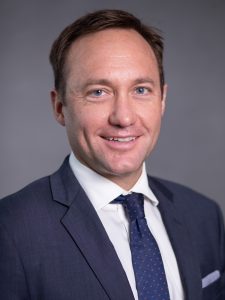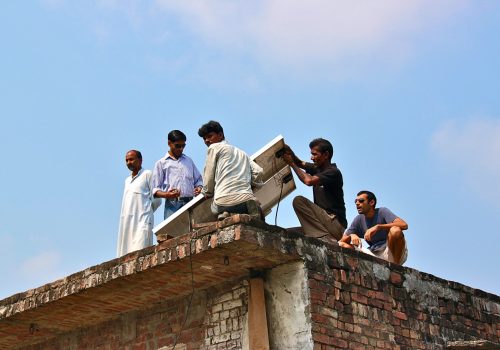Biofuels have tremendous potential to lower carbon and other pollutants’ emissions in transportation and power generation. The environmental benefits depend on how sustainably the biofuel crops are grown. Bonnie Norman, president of E3 International, discusses sustainable woody biomass use in generating electricity and heat. She details how sustainably-grown short rotation wood biomass plantations (SRPs) could improve rural livelihoods, air quality, and energy security while preventing deforestation, especially when implemented on abandoned and degraded agricultural land. She shares a case study of implementing SRPs in the Western Balkans and demonstrates the scalability of the model around the world.
Event recap
On April 24, 2020, the Atlantic Council Global Energy Center hosted the fifth installment in the new EnergySource Innovation Stream series. Building off the Global Energy Center’s EnergySource blog and soon-to-be-announced EnergySource podcast, EnergySource Innovation Stream highlights new energy technologies with the potential to reshape the global energy system through discussions with the companies and individuals working diligently to bring those innovations to market at scale.
The stream featured Bonnie Norman, president of E3 International, a company dedicated to growing biofuels on abandoned and degradable land. Randolph Bell, director of the Global Energy Center and Richard Morningstar chair for global energy security at the Atlantic Council, offered introductory remarks and moderated the discussion.
In kickstarting the discussion, Norman provided general background on E3 International’s mission and briefly explained the sustainable biofuels cultivation process. She outlined E3 International’s goals: promoting a healthy world, economic recovery, and opportunities for climate mitigation. Her company, which works with a variety of international institutions, including the European Bank for Reconstruction and Development, the US Agency for International Development, as well as governments and corporations, focuses specifically on growing and scaling sustainable biofuels. These biofuels are sticks that grow several feet high on short rotation wood biomass plantations (SRPs). They are ready to harvest after three years and their full life cycle is approximately twenty years.
Norman asserted that biofuels offer a wide array of benefits, including a positive return on investment (ROI) after approximately five years, co-location with other renewable sources, rural economic development, and afforestation. According to Norman, the Western Balkans, with its nearly 1.6 million hectares of mostly public, abandoned non-agricultural land, is particularly suited for biofuels cultivation. Furthermore, the combination of high agricultural unemployment, air pollution from coal burning, and limited markets for locally-produced energy creates an opportunity for biofuels to flourish in the region.
Recognizing that issues of unemployment, air pollution, and energy dependence were particularly acute in Serbia, Norman and her team began working in Serbia’s agricultural heartland—the autonomous province of Vojvodina—an area home to approximately 200,000 hectares of abandoned land suitable for SRP. The E3 team established the Sustainable Serbia Finance Facility with the goal of raising $1 billion or more in investment to develop sustainable energy farms, build solar thermal greenhouses to extend the growing season, and promote afforestation on non-agricultural lands.
Norman concluded her presentation by answering questions on the scalability of E3 biofuels activity beyond Serbia, the likelihood of competition for government land, and the efforts being undertaken to protect and maintain the local ecosystem. She explained that similar biofuel projects could be scaled in countries that have firm government support, a hydrocarbon-heavy energy mix, and ample non-agricultural land suitable for biofuel production. Despite strong competition for government land, E3’s biofuels process requires only about ten percent of the terrain to achieve one hundred percent energy security. To ensure the biofuels process does not harm the local environment or introduce invasive species, E3 practices sustainable cropping methods; plants native willows and poplars; works with local experts from the University of Belgrade; and employs precision irrigation techniques to limit water use.
Featuring

Bonnie Norman, President, E3 International LLC
Bonnie Norman is President of E3 International, LLC (E3I), providing sustainable energy project development, finance, and advisory services to help our clients achieve their energy, economic, and environmental goals—with a focus on developing and transition countries. Our global E3I team of experts partners with enterprises, governments, and development and finance institutions. Norman is a frequent speaker and adviser on establishing green banks to accelerate clean energy investment, serving as board vice chair of the Montgomery County (MD) Green Bank and Advisory Council member of the Washington, DC Green Finance Authority. A LEED Accredited Professional and former corporate real estate executive, she received her Masters of Business Administration from Harvard University Graduate School of Business.
Related experts
Related content
Learn more about the Global Energy Center

The Global Energy Center develops and promotes pragmatic and nonpartisan policy solutions designed to advance global energy security, enhance economic opportunity, and accelerate pathways to net-zero emissions.




